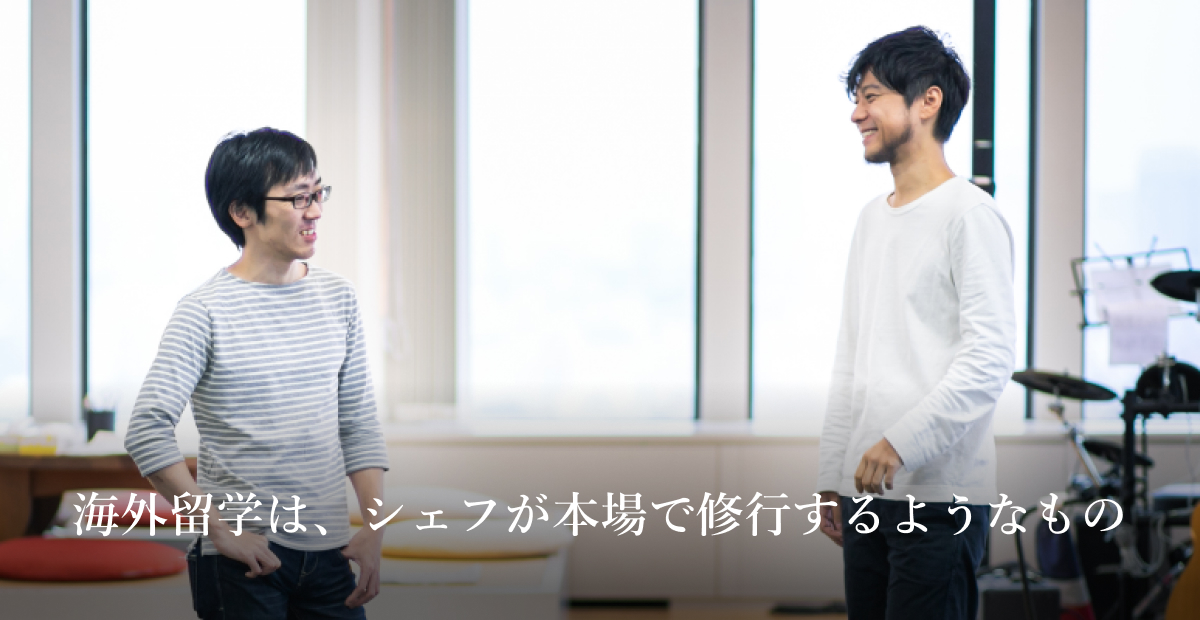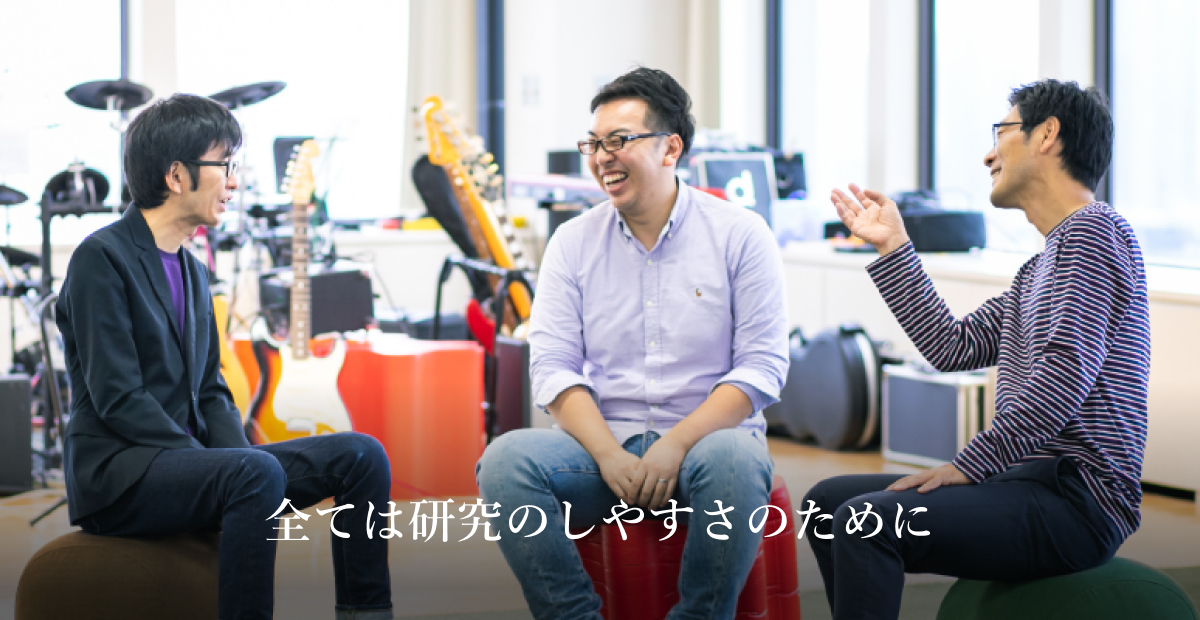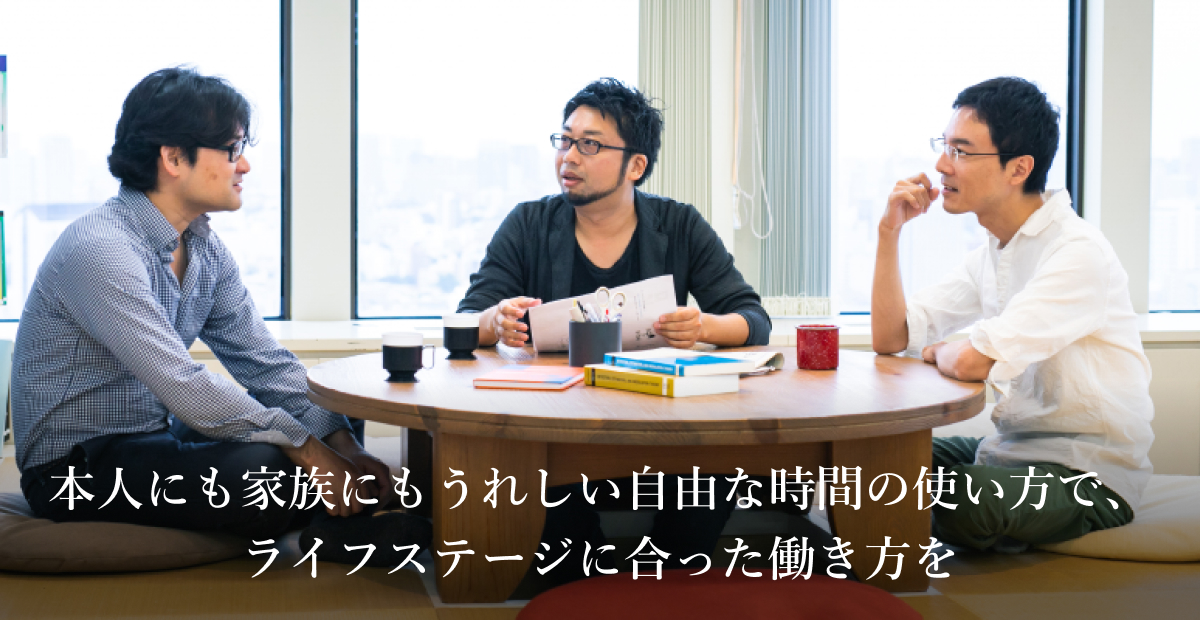Round-Table Discussion: “How Environmental and Academic Activity Support Research“
Academic activity improves your research
DENSO IT Laboratory (hereafter, IT Lab) has research laboratories that are different from universities and other large corporations in that they offer a research environment with a comparatively high amount of freedom. In addition, IT Lab encourages participation in academic activities and presentation of research papers. We asked researchers working at IT lab about the appeal of academic activity.
Member
-
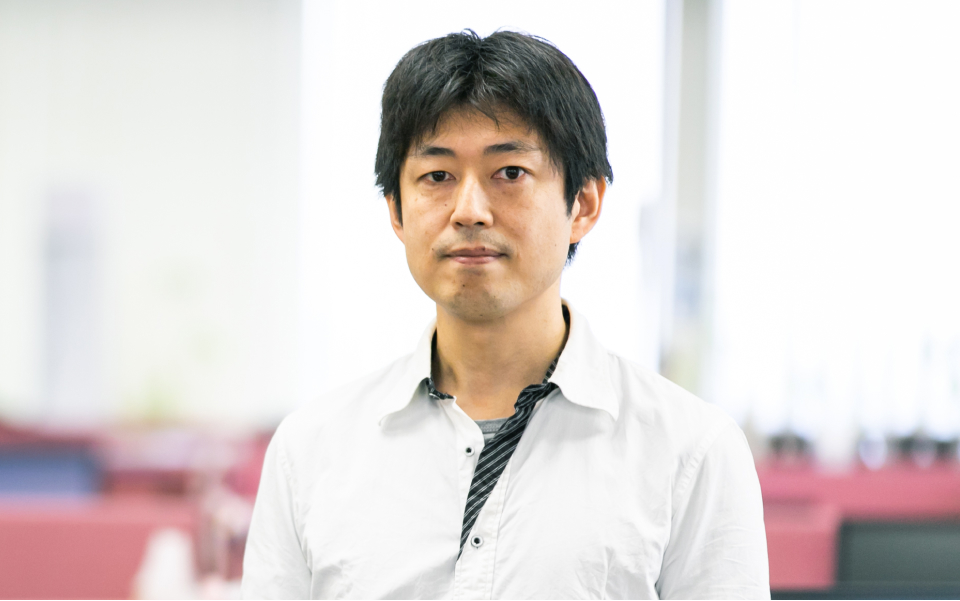 Mitsuru Ambai
Mitsuru Ambai
Research and Development Group
Senior Researcher
Joined company after completing doctoral courses with the hope of putting his research into practical application. Expertise in image recognition. At present, pursuing development of image recognition models that can be implemented in computers with low power consumption and helping develop algorithms requiring less computation. -
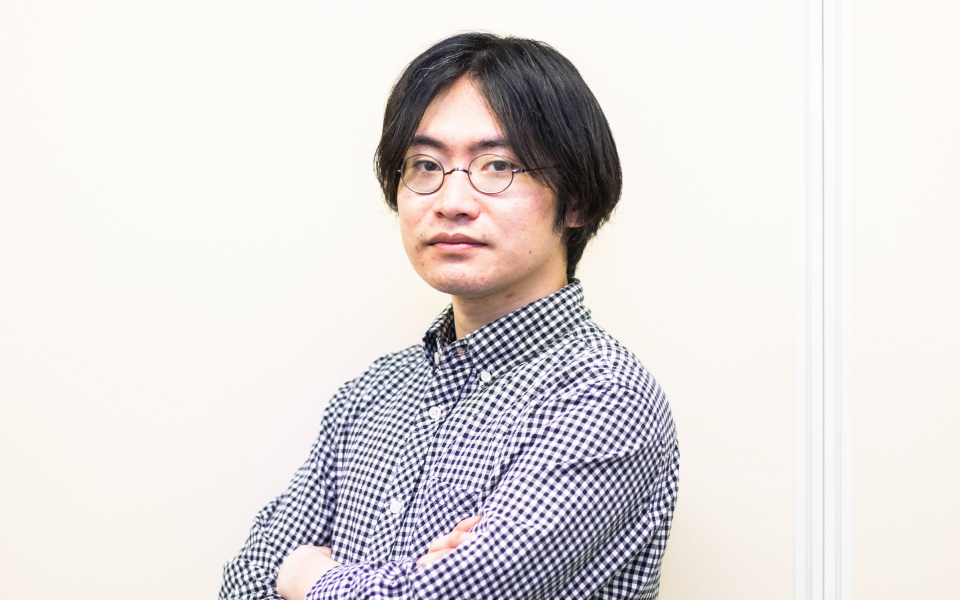 Kei Uchiumi
Kei Uchiumi
Research and Development Group
Researcher
After completing master’s degree, joined company seeking an environment in which he could continue research into natural language processing technology. At present, he is continuing study without a professor with unlabeled data or without any labeled data. His goal is to create an environment where not only cars, but also various devices can respond to human commands. -
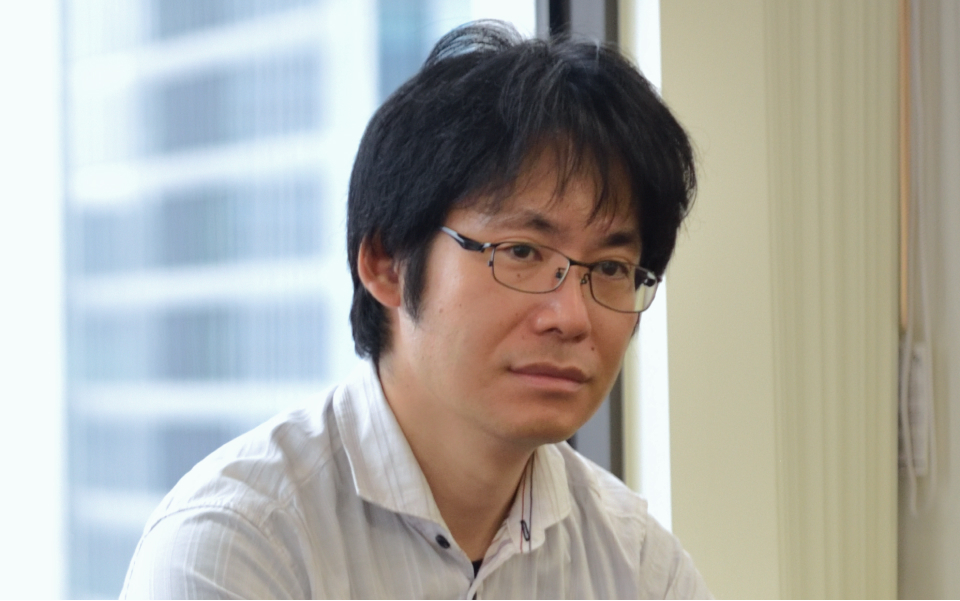 Makoto Obayashi
Makoto Obayashi
Research and Development Group
Researcher
After completing doctoral courses, he worked three years at public research facility. Later joined IT Lab. Majored in control engineering. At present focusing his research on real-time optimization. Pursuing application of research results in automobile safe driving assistance systems.
Seeking a place to pursue your own research
― First off, tell us how the three of you joined the company and the reasons why.
Ambai I wanted to do research that had practical use and was determined to work after completing my doctoral courses. When I was a student, my research was on ITS (Intelligent Transportation Systems. As I was looking for corporate research facilities in the city that were involved with automobiles, an acquaintance told me about IT lab. I did some research and I discovered IT Lab were doing research into image recognition that could be put to practical use and I was attracted to that.
In addition, when I was a student, I had experience working at a small venture company, so I knew that working with a small team could be very interesting. That was another thing that attracted me to IT Lab.
Obayashi After graduating from university, I did a year of post-doctoral work and spent a three-year fixed term at a public experiment and research organization in Tokyo, then joined IT Lab. In my previous job, I did research into the scheduling of communications on sensor networks, but I wanted to do research development that would have more practical uses. At present, my research field at IT Lab is optimal control.
UchiumiIn my case, before joining IT Lab, I did research into natural language processing at the first company I worked for after graduating. However, there were organizational changes and I was no longer able to do the kind of research activity I wanted, so I decided to change workplaces.
At that time, IT Lab felt like the place that would best allow me to continue the research I wanted to do. Unlike many other corporate research labs, IT Lab allows us to choose our own research themes and the environment is such that I can focus on the research I want to do. The fact that I’m allowed to do basic research is also big. There aren’t many company labs that allow you to do basic research.
The purpose of academic activity is to brush up on your own research
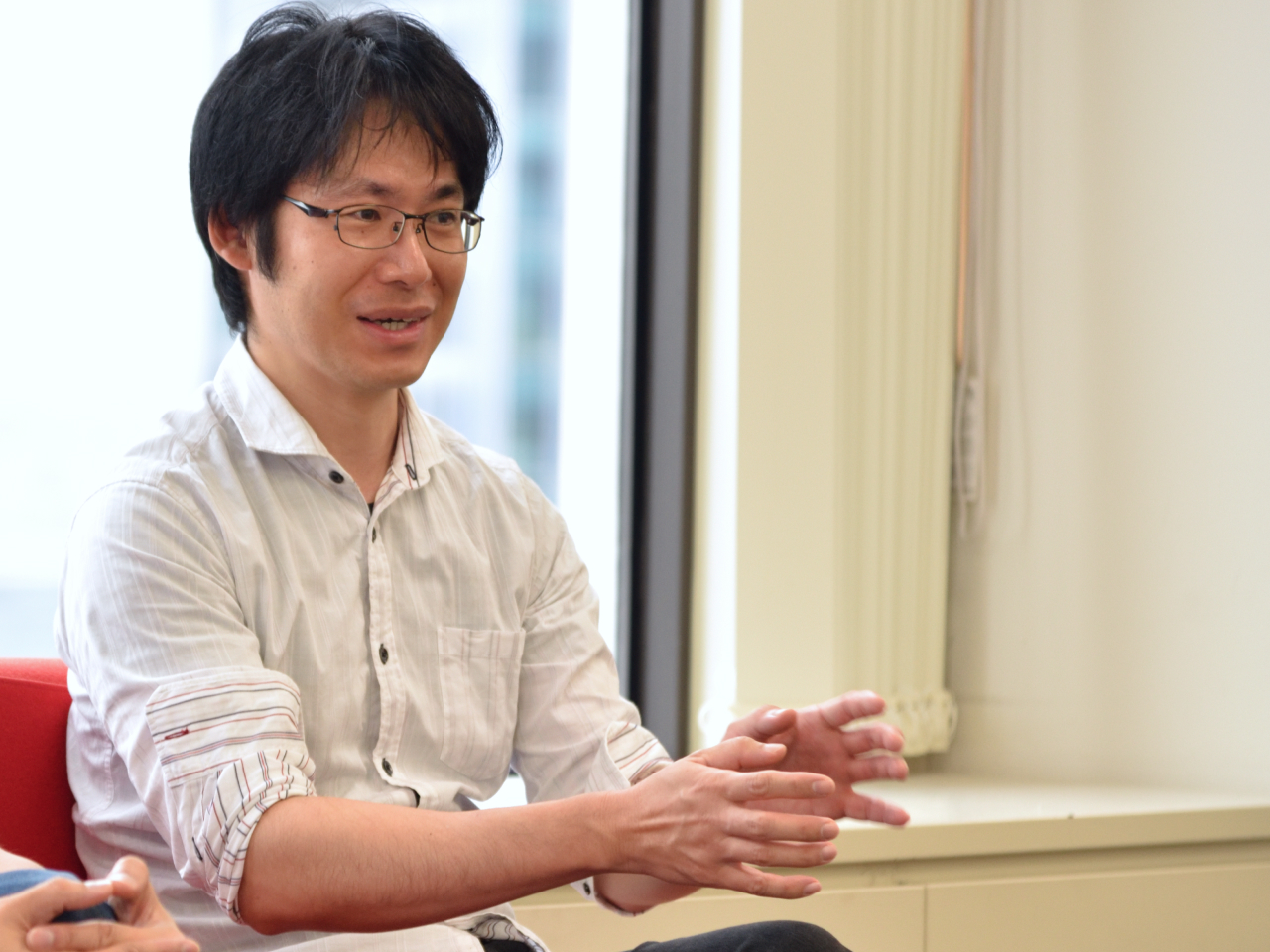
― I’ve heard that all of you participate actively in academic activities.
Obayashi Yes. In addition to the various presentations I do outside of the company, I am active as a member of an academic expert committee (an automobile technology group). In this academic group, research is subdivided into many themes and we then give presentations and hold debates.
There, we can talk to each other about present trends in our research fields. We also invite outside lecturers to give presentations or explanations on cutting edge technical fields. Sometimes, we have the opportunity to absorb deep knowledge on these cutting edge technical fields. By actively participating, we naturally make a lot of connections. In addition, when you present a research paper at one of the meetings, you get a lot of feedback. The IT lab control team has few members, so the chance to receive advice from a diverse range of viewpoints as we conduct research and development is important.
Uchiumi Yes, I agree. I inherited Obayashi’s post as a member of an academic study group on artificial intelligence, but there was a lot of administrative work, and it was quite difficult (laugh).
Abe I mainly conduct presentations at domestic research seminars and symposiums related to image recognition. On top of that, I am sometimes invited to be a guest lecturer and have even presented a research paper at an international conference. Previously, I was a member of the PRMU (Pattern Recognition and Media Understanding) research group and even served as an executive for two years. From that, I am gaining opportunities for joint research, and the range of my actual work has increased.
Not limited to research papers alone, academic activity and the technology blog we publish at IT Lab allow us to put information out into society. I think that in turn provides us more opportunities to make proposals that could lead to new products, and in broad terms contribute to society.
― Do many other companies participate in academic activity?
Uchiumi Natural language processing has always been easy to connect to business, so there are a comparatively high number of participants from corporations. Lately, it’s not just companies with a long history, but there have also been more participants from emerging companies.
Ambai As Uchiumi said, compared to ten years ago, the range of companies that participants hail from has changed a lot.
Obayashi You’re right. However, while corporations are participating in academic activity, they are mostly involved with lectures where they gather information and don’t give many presentations. I can understand that, since companies want to keep their research content secret until products are manufactured, but my impression is that many of the researchers at companies regret this. IT Lab encourages us to give academic presentations in order to raise the value of our technology, so I think we are a rare breed as a corporation.
Researchers are also responsible for managing academic study groups
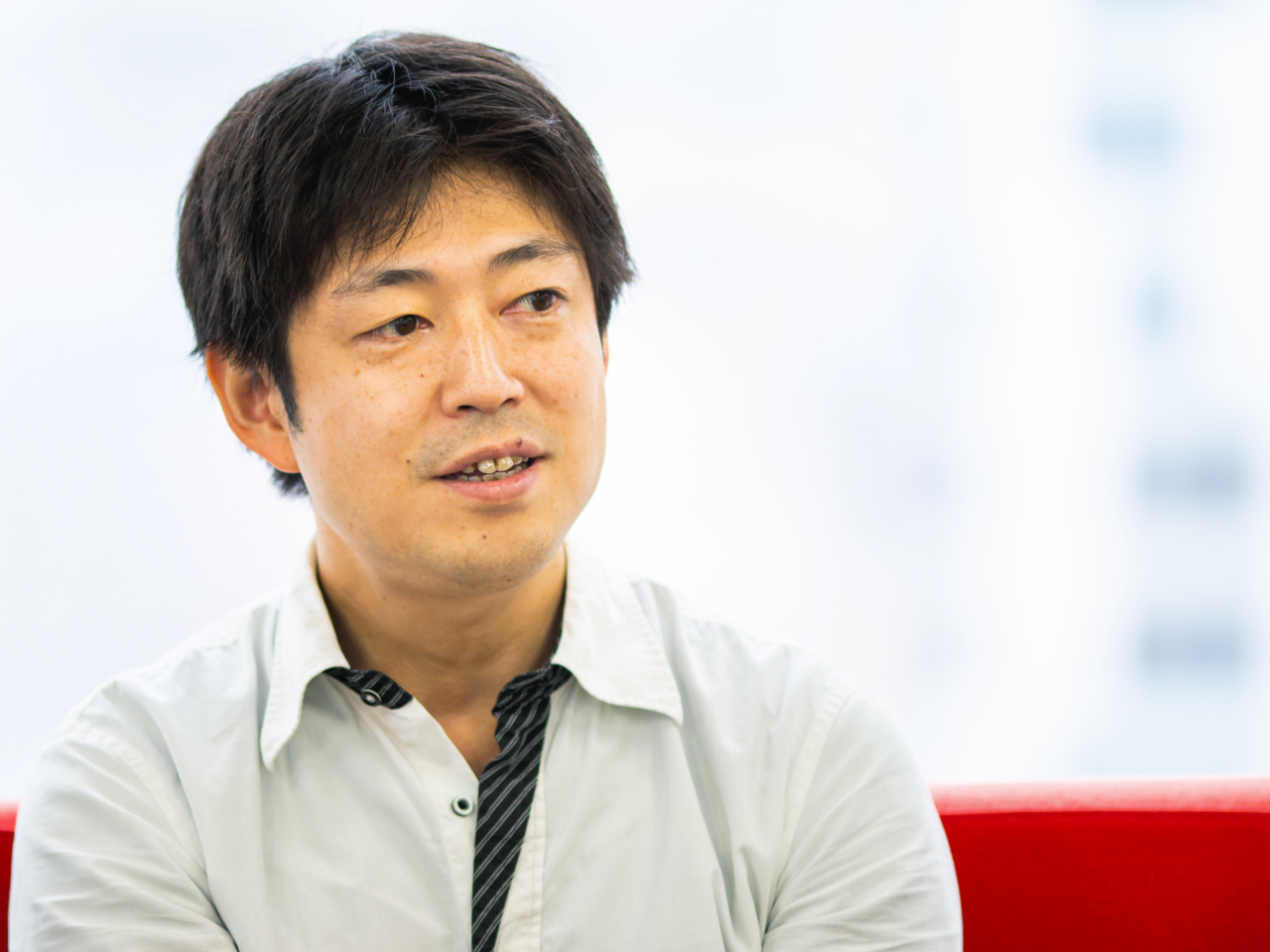
Ambai Participation in the management of an academic group is voluntary. If you are thinking about participating in an academic group to present your research papers and grow as a researcher, helping with the management of the group is also a responsibility you should fulfill as a researcher. I was in charge of reading and editing research papers and when things were busy with management, I had to spend to spend as much as twenty percent of my work time on that.
Uchiumi Yes. When you submit a paper, you are indebted to many people, beginning with those who read and evaluate it. I also believe that if I want to participate in the study group, I should give back by taking part in the management. Without that sort of cycle, the group will never fulfill its potential. I am grateful that we have an environment that lets us take part in those sort of activities.
What does IT Lab look for in its researchers?
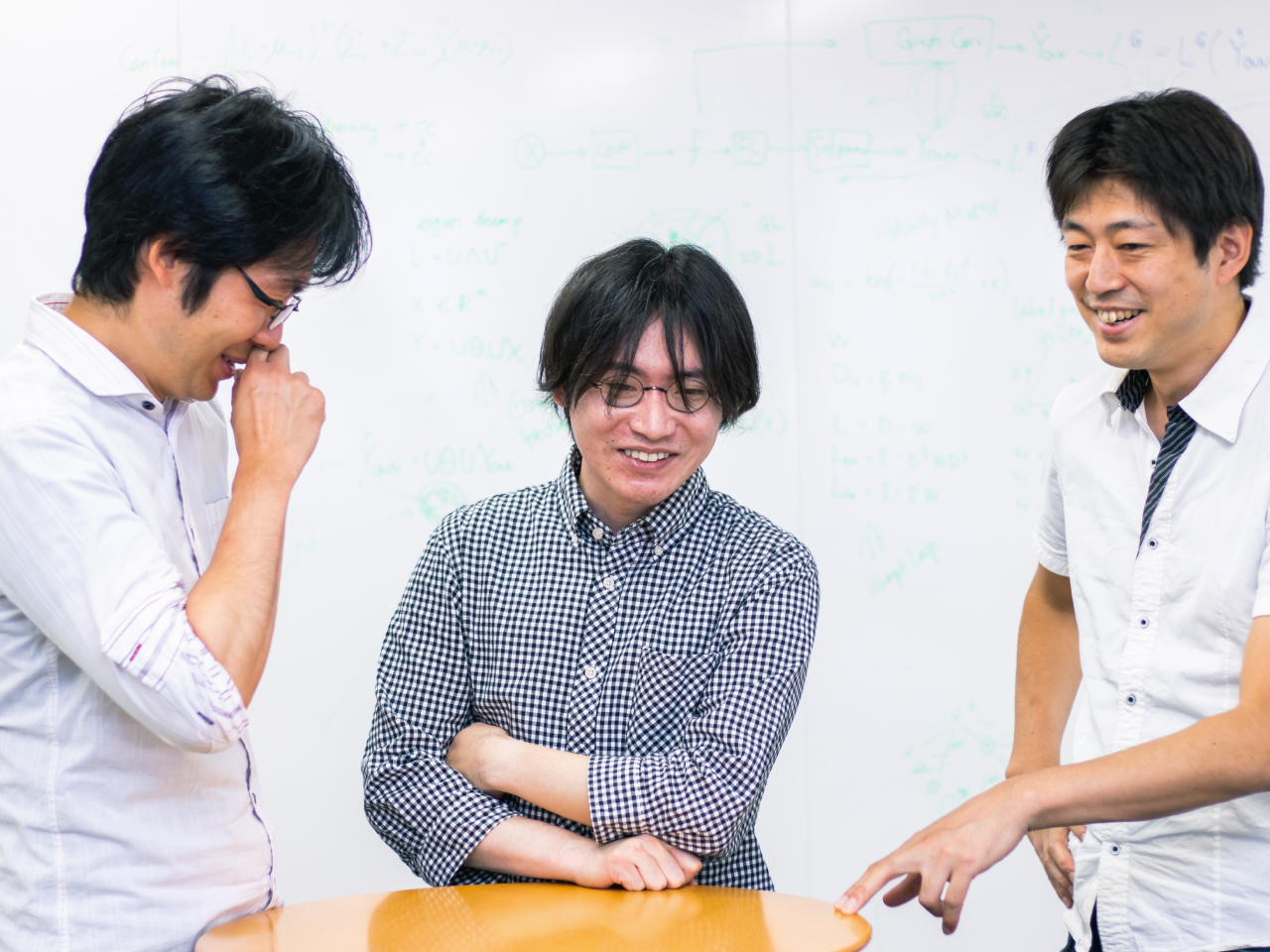
― What is expected of you at IT Lab?
Abe At DENSO headquarters, there are many technical problems that need to be addressed when creating products. For example, someone once came to me and said “I’d like to run image recognition technology on this hardware, but it’s not fast enough”.
To solve their problems, you have to grasp the cutting edge technology and raise your know-how to a level at which you can make proposals. For that, you spend your days doing research and by presenting research papers and participating in lectures, you are able to encounter the latest technology and accumulate that as part of your skill set. I think that’s what is asked of us.
ObayashiI often do seed-type proposals where I say “I think we can use this new technology in new products”. I believe our research is not only about problem solving, but requires me to address both needs and seeding.
― What is the difference between the research environment at IT lab and that at universities?
Obayashi When doing research at a university, you have to produce as many research papers as possible and the writing of paper proposals becomes first priority, preventing you from conducting deep research into technology at a reasonable pace. That doesn’t happen at IT Lab. I am allowed to pursue the research that interests me. However, I think it’s important that what interests me and DENSO’s needs are compatible. If you meet those conditions, I think IT Lab offers a great environment.
Uchiumi At a university, you have to write a lot of papers and carry out activities to earn the money to pay for your research. However, at IT Lab, we are given a certain amount of funds for research without that sort of activity. I think that is another big difference.
Motivation as a researcher
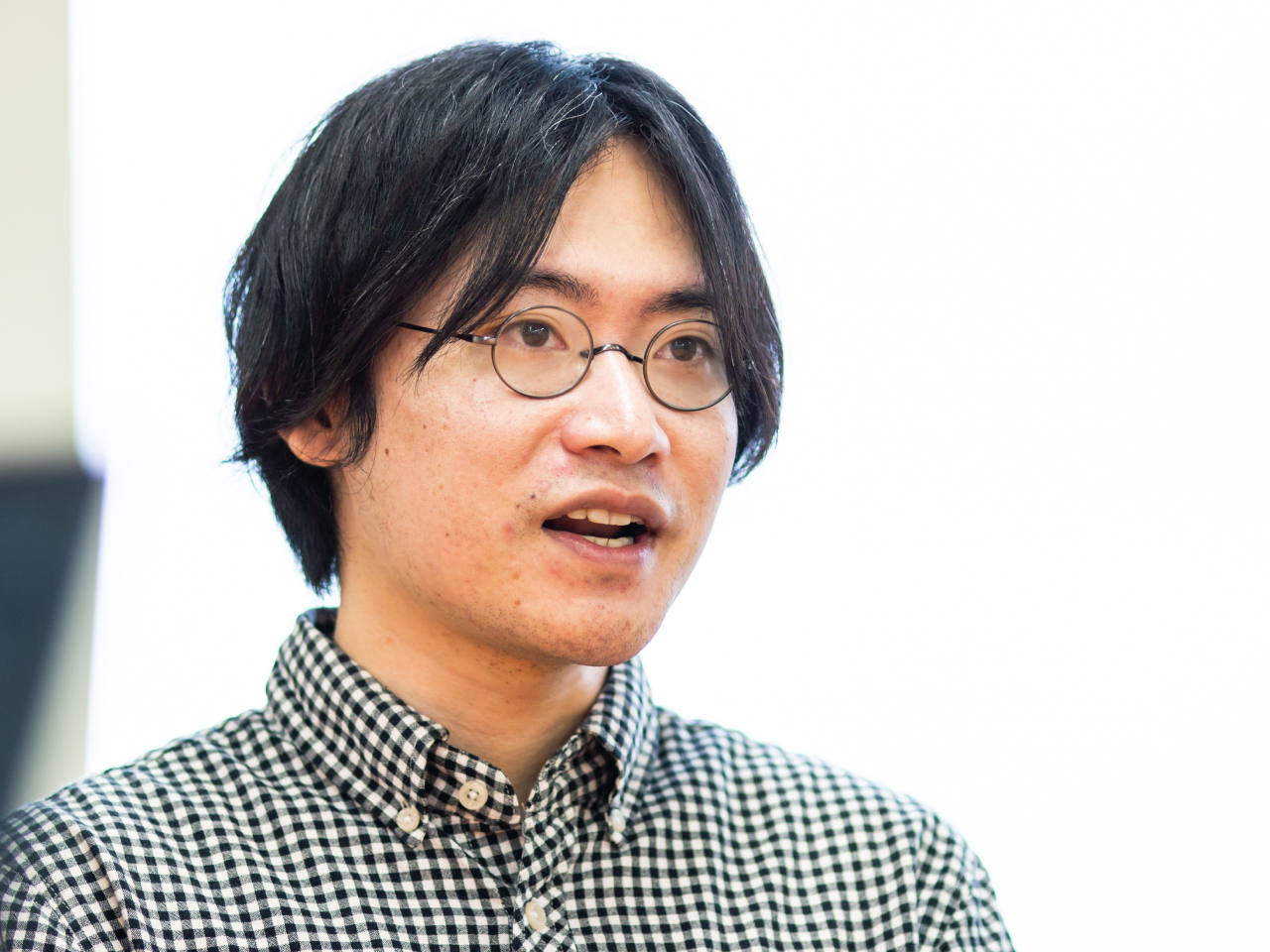
― Lastly, I’d like to ask what motivates you as a researcher. Where and how do you find fulfillment?
Obayashi At IT Lab, we not only get to try out lots of cutting edge technology, but more importantly, we also conduct research that is directly tied to engineering (design, manufacturing). That means my research is applied to concrete company products in a very close way. Using cutting edge technology, we obtain results and release them into the world at large. That’s what motivates me as a corporate researcher.
Uchiumi I find fulfillment in taking things that people said could not be made or were too difficult to implement, and then accomplishing them using the latest knowledge. That’s my biggest motivation to continue as a researcher.
Ambai What I find most satisfying is that I can cooperate deeply with people who are seeking practical applications for research and develop a close relationship with them as I work. I also enjoy taking the latest research results from universities, converting that to technology, and then working with a company that wants to put those things to practical use in the form of a product.
For myself, I have taken the mindset of the DENSO Group to heart and try to think about “what challenges will need to be addressed in the future” as I conduct my research. I then share my results in the form of research papers and academic study groups. From there, projects to make a product begin within the group, but my work doesn’t end there. My presentations have also allowed me to deepen my ties with universities and as a result, I also conduct joint research.
The way a corporation approaches putting things to practical use and pursuing projects is different from the educational and cutting edge research approach of universities in many, many ways. However, I find the greatest enjoyment in combining those two perspectives to see the future, conduct research, and put the results into use.

